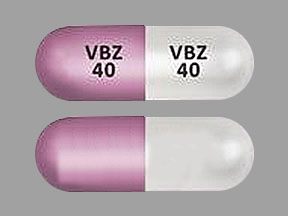Ingrezza and Alcohol/Food Interactions
There is 1 alcohol/food/lifestyle interaction with Ingrezza (valbenazine).
Valbenazine Food/Lifestyle
Major Food Interaction
Grapefruit and grapefruit juice may increase the blood levels and effects of valbenazine, such as drowsiness and an irregular heart rhythm problem called QT prolongation. Irregular heart rhythm problems may be serious and potentially life-threatening, although it is a relatively rare side effect. You may be more susceptible if you have a heart condition called congenital long QT syndrome, other cardiac diseases, conduction abnormalities, or electrolyte disturbances (for example, magnesium or potassium loss due to severe or prolonged diarrhea or vomiting). Talk to your doctor if you have questions or concerns. Do not add grapefruit products to your diet, or increase or decrease the amount currently in your diet without first talking to your doctor. You may need a dose adjustment of valbenazine or more frequent monitoring by your doctor to safely use both valbenazine and grapefruit products. You should seek immediate medical attention if you develop sudden dizziness, lightheadedness, fainting, shortness of breath, or heart palpitations during treatment with these medications. It is important to tell your doctor about all other medications you use, including vitamins and herbs. Do not stop using any medications without first talking to your doctor.
Switch to professional interaction data
Ingrezza drug interactions
There are 513 drug interactions with Ingrezza (valbenazine).
Ingrezza disease interactions
There are 4 disease interactions with Ingrezza (valbenazine) which include:
More about Ingrezza (valbenazine)
- Ingrezza consumer information
- Check interactions
- Compare alternatives
- Pricing & coupons
- Reviews (20)
- Drug images
- Side effects
- Dosage information
- Patient tips
- During pregnancy
- Generic availability
- FDA approval history
- Drug class: VMAT2 inhibitors
- Breastfeeding
- En español
Related treatment guides
Drug Interaction Classification
| Highly clinically significant. Avoid combinations; the risk of the interaction outweighs the benefit. | |
| Moderately clinically significant. Usually avoid combinations; use it only under special circumstances. | |
| Minimally clinically significant. Minimize risk; assess risk and consider an alternative drug, take steps to circumvent the interaction risk and/or institute a monitoring plan. | |
| No interaction information available. |
See also:
Further information
Always consult your healthcare provider to ensure the information displayed on this page applies to your personal circumstances.


